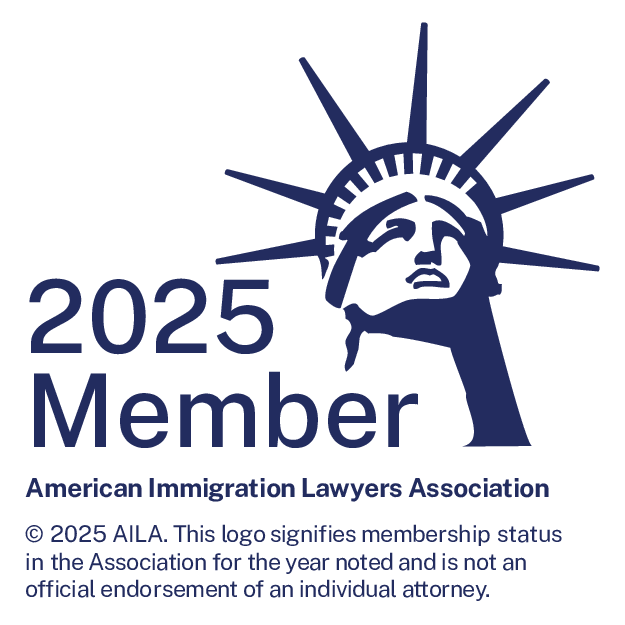Immigrant Investors/Employment Creation Visas
In order to attract foreign capital to the United States and provide jobs for American workers, Congress established a special immigrant visa category, the EB-5 Immigrant Investors visa category, for foreign investors who create jobs for U.S. workers. Each fiscal year, Congress allocates 10,000 visas for this category, 5,000 of which are reserved for investments in targeted low employment areas. In order to facilitate the use of such visas, the U.S. Citizenship and Immigration Services (USCIS) has designated a number of regional investment centers throughout the United States. Information about these centers is readily available on the Internet. Congress has continually extended the EB-5 Visa Program since its inception in 1991.
To qualify for a visa in the EB-5 category, the foreign national must:
- establish a business, or invest in an existing business that was created or restructured after November 19, 1990;
- invest $1 million, or in certain cases $500,000, in the business; and
- create full-time employment for at least 10 U.S. workers.
Establishing or Expanding a Business
To meet this requirement, the EB-5 Investor must create an original business (or purchase an existing business and simultaneously restructure or reorganize it so that it results in a new commercial enterprise), or expand an existing business created after November 19, 1990, by investing the requisite $1million or $500,000.
Any for-profit entity, including sole proprietorships, partnerships (including limited partnerships that conform to the Uniform Limited Partnership Act), holding companies, joint ventures, corporations, business trusts, etc. engaged in lawful business may serve as a commercial enterprise. Holding companies and their subsidiaries may also qualify if each subsidiary actively conducts business. Noncommercial activities, such as home ownership, however, do not qualify. The EB-5 regulations require that the foreign national investor be involved in management or policy making of the enterprise.
Investment
The investment may be in the form of cash, equipment, inventory, other tangible property, or cash equivalents. Indebtedness also may constitute investment if assets owned by the foreign national secure it and if the investor is personally and primarily liable for it, as long as the assets of the new commercial enterprise are not used to secure any of the indebtedness. Capital acquired by unlawful means, of course, may not be used to satisfy the investment requirement. Proof of lawful accumulation of the capital is necessary.
The investment amount is $1 million. If the business is created in a “target employment area,” the investment amount may be reduced to $500,000. Targeted employment areas include rural areas (defined as an area other than one within a metropolitan statistical area or within the boundary of a city or town with a population of 20,000 or more), or areas with an unemployment rate of at least 150% of the national average..
The foreign national may make the investment alone, with other immigrant investors or even with U.S. citizens. If the foreign national creates the qualifying business with one or more other foreign nationals, each foreign national seeking classification as an immigrant investor must have invested the requisite amount, but each may use the same employees to satisfy the 10 new jobs requirement.
Job Creation
The investment must create at least 10 full-time jobs for U.S. citizens, lawful permanent residents or other immigrants lawfully authorized to work in the United States (conditional residents, temporary residents, asylees, refugees, but not non-immigrants). The 10 employees may not include the investor’s spouse or children. Other family members employed by the business, however, may be included when calculating the requisite number of jobs created.
The 10 positions must be full-time jobs, i.e. a minimum of 35 working hours per week. While two or more employees may share a full-time position, part-time employment is specifically excluded. Accordingly, a combination of two or more part-time positions will not satisfy the job creation requirement even if they collectively constitute a 35-hour per week.
If a foreign national investor is able to demonstrate that a new commercial enterprise has been created or an existing business has been expanded, that the requisite capital has been placed at risk, that the investment capital was lawfully gained, that the enterprise will require hiring or maintaining 10 employees for full-time jobs, and that the investor will be engaged in the management of the enterprise, the U.S. Citizenship and Immigration Services (CIS) may approve a two-year conditional permanent resident status for the investor, his/her spouse and dependent minor children. To obtain unconditional permanent resident status the foreign national must file a petition with the CIS immediately prior to the second anniversary of the conditional status, with evidence that the investor visa requirements were substantially met and continuously maintained throughout the conditional two-year period.
The CIS may terminate a foreign investor’s residence at the end of the two-year period (or earlier) if it finds that the business was not established, was established solely to evade immigration laws, or that the requirements were otherwise violated. If, however, the CIS finds that the foreign national established a requisite business, invested the required capital and created 10 full-time jobs, then the conditions will be removed and the foreign national will be granted full permanent residence.



